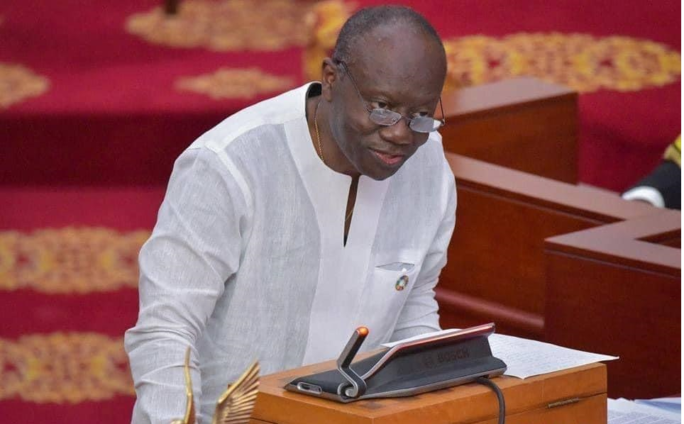The Finance Minister, Ken Ofori-Atta, is set to announce a Mid-Year Budget Review today July 31, 2023, that will outline a comprehensive set of growth strategies, with the overarching objective of promoting greater stability and prosperity for Ghana's economy.
The Mid-Year Budget Review is also expected to help the government undertake critical reforms in the energy and cocoa sectors, towards economic transformation.
Ghana, like many other countries, has been buffeted by exogenous headwinds such as COVID-19 and the war in Ukraine. These external factors have influenced the nation's economic trajectory significantly.
However, through the Mid-Year budget, the government is said to be seeking to tackle these issues and capitalize on opportunities for growth. By adopting effective strategies and policies, the government aims to steer the country's economy towards a positive trajectory.
Notably, the energy and cocoa sectors have been earmarked for transformation in the Mid-Year Budget, as they play pivotal roles in Ghana's economic landscape.
Sources at the Ministry of Finance say the energy and cocoa sector reform agenda, part of a broader Transformation and Growth Agenda, aims to address immediate policy and financing challenges, while propelling the nation towards greater stability and prosperity.
The energy sector reforms are expected to focus on ensuring reliable and efficient energy supply, crucial for industrial growth and the overall economy.
Addressing weaknesses in this sector will attract investments, stimulate economic activities, and pave the way for job creation.
Similarly, the cocoa sector, being one of Ghana's key agricultural exports, is set to undergo significant modernisation to boost production, improve value addition, and increase export earnings, thereby benefiting farmers and communities dependent on cocoa cultivation.
A revitalised cocoa sector can indeed play a pivotal role in driving inclusive growth and poverty reduction.
By targeting these key sectors and implementing strategic reform measures, the government aims to create a conducive environment for private sector-led investments, which can further boost economic growth. The emphasis on sustainable economic growth and development aligns with long-term objectives to improve the overall standard of living and quality of life for the people of Ghana.
It is believed that the “Ghana Mutual Prosperity Dialogue Framework” will serve as a cornerstone of these reforms, promoting shared growth anchored on job creation, exports, and import substitution.
Latest Stories
-
Herty Corgie’s Overflow Experience 2025 fills Grace2Grace Centre with Praise
2 minutes -
Closure of Ghana’s embassy in Tehran a “step in the right direction” – Nana Yaw Mireku
8 minutes -
Ghana must uphold its sovereignty amid global power struggles – Nana Yaw Mireku
11 minutes -
Minority calls for comprehensive revenue reform as it urges full repeal of suspended Dumsor levy
16 minutes -
Appointment must be based on merit, not quotas – Justice Dzamefe on gender parity
19 minutes -
Why shouldn’t judges declare their assets? – Justice Dzamefe quizzes
23 minutes -
Let judges retire healthy at 70 and serve as assessors – Justice Dzamefe
27 minutes -
Justice Dzamefe supports uncapping of Supreme Court judges
28 minutes -
Justice Dzamefe kicks against raising retirement age for judges from 70 to 75
47 minutes -
OmniBSIC Bank relocates Osu branch to enhance customer experience
57 minutes -
GES confirms burial of one student, vows to probe drowning of 7 Lawra SHS students
57 minutes -
From 8 As in WASSCE to First Class at UG: The inspiring story of Emmanuel Annor
1 hour -
PRINCOF to serve only one daily meal to teacher trainees over financial constraints
1 hour -
CLOGSAG directs staff to strike over alleged misconduct by acting Births and Deaths Registrar
2 hours -
Moving Health and Trotula Fund equip Tumu midwifery college
2 hours

